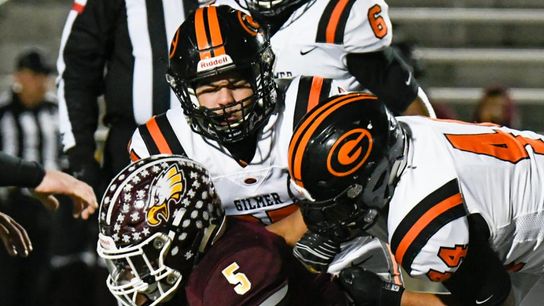Here are three facts applicable to all athletes in all sports:
- When seeking to take your game to the next level, talent is the most important factor in getting you there.
- Unless you're LeBron James (and, who are we kidding, you're not) there will always be someone else equally or more talented than you.
- When coaches are weighing two equally talented players, the decision then comes down to everything else but what happens between the lines.
In concordance with Point No. 3, each of us operates on a sliding scale: the bigger headache we are off the field, the more talented we have to be to stay on it as coaches will look for more and more reasons to sit you down. Similarly, the better, more reliable, more encouraging, more constructive teammate you are, the more reasons coaches will look for reasons to keep you around when your talent doesn't quite measure up.
But don't take it from me. Here are the words of Quinnipiac head rugby coach Becky Carlson, taken from her lengthy "An Open Letter to the Athlete We Must Stop Recruiting," posted on LinkedIn:
I received your introductory two-line email and read through it. I must say your first sentence was painfully familiar as you introduced yourself by first name only. I assumed if you were trying to make an impression that you would have paid more attention to punctuation but my assumption appears incorrect. While your opening email failed to identify your last name, what year in school you are, where you are from, or what position you play, you managed to include your most pressing question as to whether our team is "giving out scholarships".
A week later, I received a second email with full color resume attachment including your action photos, and a variety of links to related newspaper articles. Each of these items were compiled in an orderly fashion and sent out directly from both your parents' emails.
While it took a bit to thumb through the long list of your impressive extracurricular activities please thank your parents for putting this packet together and understand that it would have been far more beneficial for our staff to speak to you personally by way of an old school phone call. As my staff sent correspondence to your personal email, we have received only a return from your parents apologizing and explaining that you are simply "too busy to answer".
When you visited the campus with your parents, the first thing I noticed is that they did most of the talking for you. However, when you did speak, you were openly correcting and verbally scolding them when you deemed their information sharing inaccurate. As a coach, an athlete who displays disrespect, especially to their parents, is a red flag in the recruiting game of analysis and observation.
As we toured the campus I took copious mental notes including a short ponder on how you were too busy for a returned phone call or email to our staff yet, your email-ready smartphone was all but attached to your hand the entire unofficial visit.
Despite my reservations, I made the trip to watch your game live so I could determine if your resume matched your talent. After observing only a few minutes of the team warm-up, I noted that you were clearly the most gifted on your squad. However, your talent was unfortunately overshadowed by the lack of energy and effort you displayed.
At halftime, the team huddled up and as always when observing recruits, I honed in carefully on your demeanor and body language. I watched you walk in the opposite direction of your teammates and take a seat on the bench away from the group. You did not return to the team circle until prompted by your assistant coach. As the head coach spoke, I observed you break off into a private conversation with another teammate, rather than offering the coach your attention.
In the second half, when you scored I noticed you waited for the other players to huddle around you and celebrate. In contrast, when a teammate scored, you retreated to your position without acknowledging or congratulating them.
You added much depth in the scoring category with some impressive runs but when you made mistakes you became vocal and eager to point out where your teammates needed to improve. You had moments of greatness but they were followed by sporadic lulls of half-hearted effort.
As you are the team captain, I found it disappointing that you did not contribute to the post game team discussion. I watched as your mother brought over snacks and saw that you made no effort to assist her in bringing those large containers of cupcakes from the bleachers out to your 40 other teammates. Last, as the rest of the team broke the field down and put equipment away, you found a quiet spot on the empty bench to text on your phone.
